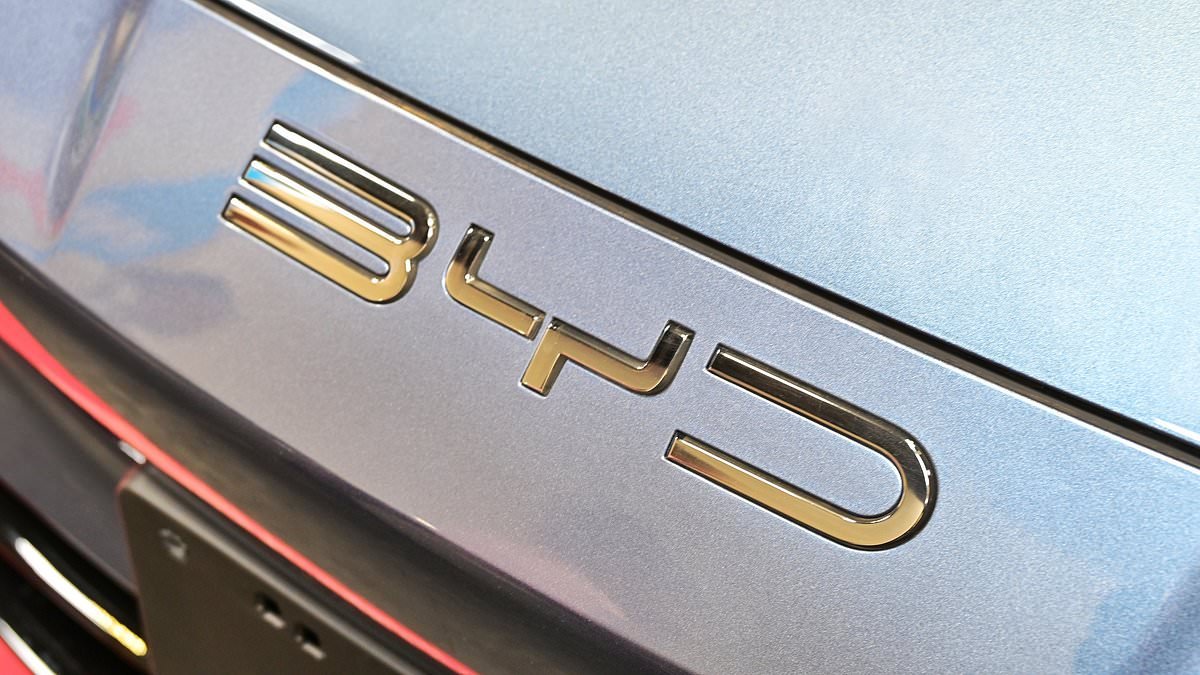- Brussels to slap Chinese-made EVs with additional tariffs of up to 38%
- Aimed at protecting carmakers who felt they were being undercut by Chinese
- Now, China’s government has ratcheted up the rhetoric
Beijing officials have warned that strict electric car tariffs ‘may trigger a trade war’ with Europe.
Tensions have mounted in recent weeks after Brussels said it would slap Chinese-made electric vehicles (EVs) with additional tariffs of up to 38 per cent.
The move is aimed at protecting European carmakers who felt they were being undercut by Chinese firms such as BYD and Geely. The charges add to the existing 10 per cent levy on cars imported into the EU, meaning they now face total tariffs of as much as 48 per cent.
But the measures – which are the result of a nine-month investigation – risk pushing up the price of EVs. Chinese businesses have urged Beijing to hit back against European cars. Now, China’s government has ratcheted up the rhetoric.
‘The European side continues to escalate trade frictions and could trigger a trade war,’ a spokesperson for China’s commerce ministry said yesterday. ‘The responsibility lies entirely with the European side.’
The comments came shortly before Germany’s economy minister Robert Habeck kicked off a three-day trip to the region as he looks to allay Chinese anger.
German carmakers would be the most exposed to any counter moves from China, as almost a third of their sales came from there last year.
EU car exports to China were worth £16.5billion in 2023, while the bloc bought £8.2billion of electric vehicles from China, according to EU statistics agency figures.
British brands such as MG and Lotus that are owned by Chinese parent companies could also be caught in the crossfire.
US giant Tesla has also suggested it will hike the price of its EVs in the face of tariffs.
Related Articles
HOW THIS IS MONEY CAN HELP
The Tesla Model Y, which costs around £45,000, is currently the most popular electric car in the UK.
The latest European levy is due to come into force on July 5 unless China and the EU can strike a deal. The UK has been silent on whether it will impose tariffs of its own – but ministers have previously said they would wait to see the results of the European investigation.
And Britain has shown a more welcoming attitude to the Chinese car industry in its efforts to woo its companies to set up manufacturing facilities in the UK.
In November, investment minister Lord Johnson said the country could capitalise on Brexit freedoms to sell Chinese firms’ electric cars to the rest of the world.
‘China have a very powerful electric car industry, they’ve got a lot of excellent technology and they’re making great cars,’ he said.
Some links in this article may be affiliate links. If you click on them we may earn a small commission. That helps us fund This Is Money, and keep it free to use. We do not write articles to promote products. We do not allow any commercial relationship to affect our editorial independence.





